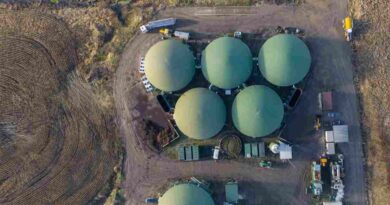Carbon Credit Trading Scheme In The Works By Indian Ministries
* The government has set sights on developing the Indian Carbon Market (ICM). The initiative will pave the way for the introduction of a national framework that will help with decarbonisation goals. * This will be achieved by pricing the Green House Gas (GHG) emission through trading of the Carbon Credit Certificates.
 Carbon Credit Trading Scheme In The Works By Indian Ministries
Carbon Credit Trading Scheme In The Works By Indian Ministries
The government has set sights on developing the Indian Carbon Market (ICM). The initiative will pave the way for the introduction of a national framework that will help with decarbonisation goals. This will be achieved by pricing the Green House Gas (GHG) emission through trading of the Carbon Credit Certificates.
The Carbon Credit Trading Scheme is being developed by Bureau of Energy Efficiency, Ministry of Power, along with the Ministry of Environment, Forest & Climate Change. With this in mind, a one-day ‘Stakeholder Consultation on Accredited Carbon Verifiers under ICM’ was held in New Delhi today. The event saw participation from key stakeholders including accredited energy auditors, carbon/energy verifiers, sector experts etc.
Presently, the country has an energy savings-based market mechanism. The new Carbon Credit Trading Scheme will augment the energy transition efforts with an increased scope that will cover the potential energy sectors in India. GHG emissions intensity benchmark and targets will be developed for the sector. These will be aligned with India’s emissions trajectory as per climate goals. The trading of carbon credits will take place based on the performance against these sectoral trajectories. Further, it is envisaged that there will be a development of a voluntary mechanism concurrently, to encourage GHG reduction from non-obligated sectors.
“The ICM will enable the creation of a competitive market that can provide incentives to climate actors to adopt low-cost options by attracting technology and finance towards sustainable projects that generate carbon credits. It can be a vehicle for mobilizing a significant portion of investments required by Indian economy to transition toward low-carbon pathways,” said Abhay Bakre, DG, BEE. He further said that this consultation will give specific guidance for developing MRV process and define eligibility criteria for Accredited Carbon Verifiers (ACVs).
The ICM will develop methodologies for estimation of carbon emissions reductions and removals from various registered projects, and stipulate the required validation, registration, verification, and issuance processes to operationalize the scheme. Monitoring, Reporting, Verification (MRV) guidelines for the emissions scheme will also be developed after consultation. A comprehensive institutional and governance structure will be setup with specific roles of each party involved in the execution of ICM. Capacity building of all entities will be undertaken for up-skilling in the subject matter.
The ICM will mobilize new mitigation opportunities through demand for emission credits by private and public entities. A well-designed, competitive carbon market mechanism would enable the reduction of GHG emissions at the least cost, both at the level of entity, as well as the overall sector and drive faster adoption of clean technologies, in a growing economy like India.
The ICM will give a push to the NDC goal of curbing the intensity of missions of the GDP by 45 percent by 2030.
It may be recalled that the carbon trading scheme was introduced through the Energy Conservation (Amendment) Bill of 2022. The BEE had shared a draft blueprint for stakeholder consultation two years ago to propose a phased introduction of a domestic carbon market.




